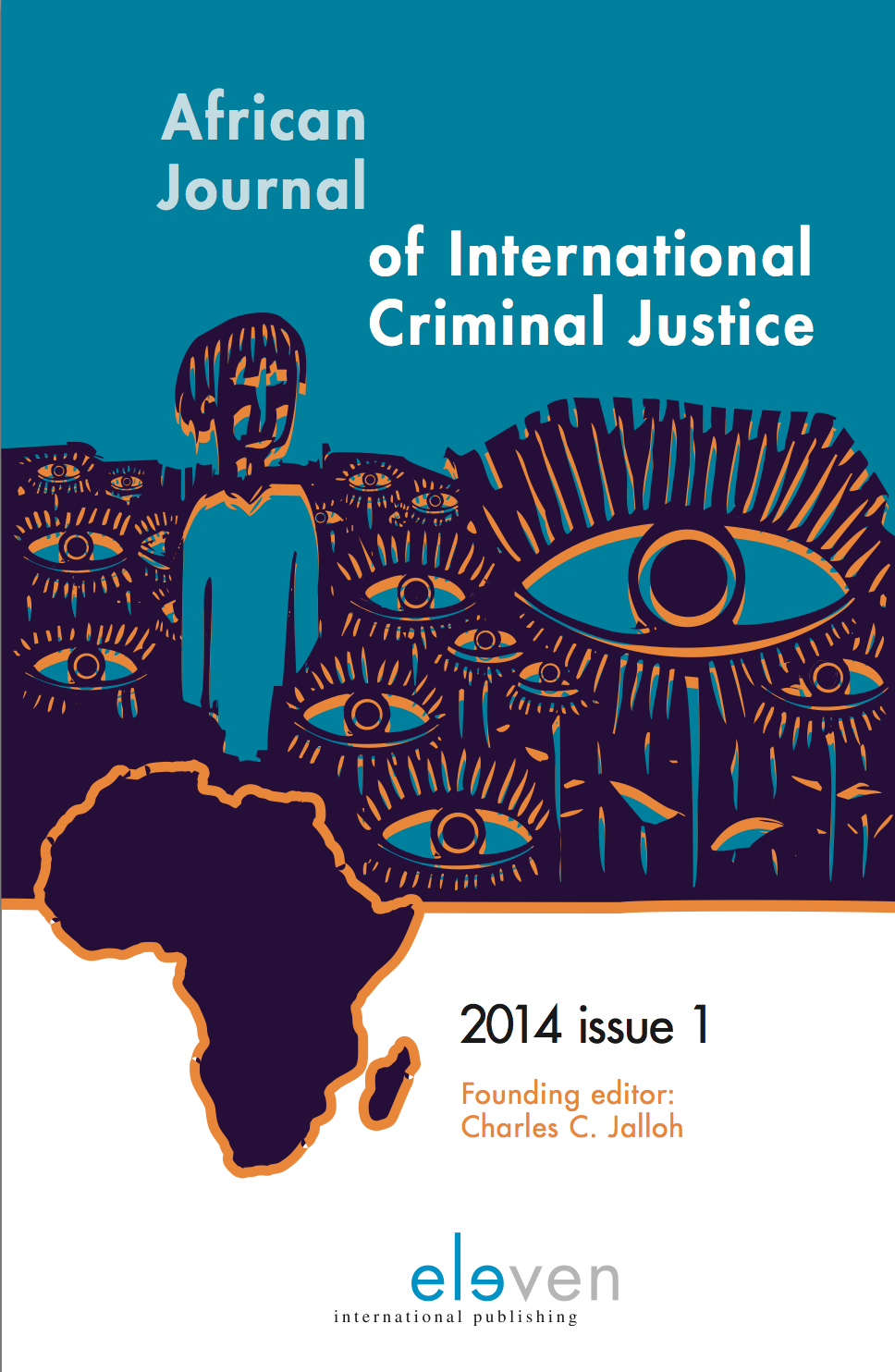|
The Rome Statute places the responsibility of prosecuting crimes recognized under the Statute on state parties and the International Criminal Court (ICC) and will only intervene when such states are unwilling or unable. This is called the principle of complementarity. Thus, African state parties to the Statute are expected to prosecute crimes recognized under the Statute. However, these African state parties and their counterparts who are not parties have decided to create the African Court of Justice and Human and Peoples’ Rights, which, like the ICC, will prosecute the crimes recognized under the Rome Statute if they are unwilling and unable. This study therefore examines the question of whether the creation of the African Court of Justice and Human and Peoples’ Rights is compatible with the obligation of the African state parties under the Rome Statute to prosecute. The study argues that the creation of the Court can be reconciled with the obligation to prosecute under the Rome Statute if the African Union, of which the Court is its judicial organ, is considered to be the agent of the African state parties, which invariably implies that the African state parties are the ones carrying out the prosecution as principals. |


African Journal of International Criminal Justice
About this journalSubscribe to the email alerts for this journal here to receive notifications when a new issue is at your disposal.
| Editorial |
|
| Article |
|
| Keywords | Rome Statute, International Criminal Court, complementarity, African Court of Justice and Human and Peoples’ Rights, unwillingness and inability |
| Authors | Muyiwa Adigun LLB, LLM PhD |
| AbstractAuthor's information |
| Article |
|
| Keywords | Malabo Protocol, African Court, Criminal Chamber, International and Transnational Crimes, African Union |
| Authors | Benson Chinedu Olugbuo LLB BL LLM Ph.D. |
| AbstractAuthor's information |
|
In June 2014, African Heads of States and Governments adopted the Protocol on the Amendments to the Protocol on the Statute of the African Court of Justice and Human Rights in Malabo, Equatorial Guinea. The Malabo Protocol seeks to expand the jurisdiction of the African Court to international and transnational crimes. This development raises fundamental issues of jurisdiction, capacity, political will and regional complementarity in the fight against impunity in the African continent. The paper interrogates the role of Civil Society Organisations in the adoption and possible operationalisation of the Court in support of the efforts of the African Union to end human rights abuses and commission of international and transnational crimes within the continent. |
| Article |
|
| Keywords | Universal Criminal Jurisdiction, International Criminal Law |
| Authors | Mr. Charles Chernor Jalloh |
| AbstractAuthor's information |
|
The principle of universal jurisdiction is a unique ground of jurisdiction in international law that may permit a State to exercise national jurisdiction over certain crimes in the interest of the international community. This means that a State may exercise jurisdiction regarding a crime committed by a foreign national against another foreign national outside its territory. Such jurisdiction differs markedly from the traditional bases of jurisdiction under international law, which typically require some type of territorial, nationality or other connection between the State exercising the jurisdiction and the conduct at issue. Due to the definitional and other ambiguities surrounding the universality principle, which has in its past application strained and today continues to strain relations among States at the bilateral, regional and international levels, this paper successfully made the case for the inclusion of “Universal Criminal Jurisdiction” as a topic in the long-term programme of work of the International Law Commission during its Seventieth Session (2018). It was submitted that taking up a study of this timely topic, which has been debated by the Sixth Committee of the UN General Assembly since 2010, could enhance clarity for States and thereby contribute to the rule of law in international affairs. It will also serve to continue the ILC’s seminal contributions to the codification and progressive development of international criminal law. |
| Legal Document |
|
| Legal Document |
|
| Legal Document |
|
| Legal Document |
|
| Legal Document |
|
| Legal Document |
|
| Legal Document |
|
| Legal Document |
|
| Legal Document |
|
| Legal Document |
|
| Legal Document |
|
| Legal Document |
|
| Legal Document |
|
| Legal Document |
|
| Legal Document |
|
| Legal Document |
|

 Issue 1-2
Issue 1-2